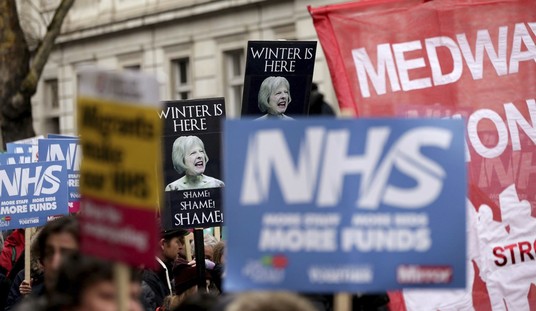So says the Washington Post, which also predicts that the approval will only have one dissenter, Democrat Michael J. Copps. The FCC will have its path cleared by the Department of Justice, which has already decided not to pursue antitrust action against the deal, apparently only with the caveat that the new entity could not retaliate against business partners who choose to use outside ticketing or promotional services:
Federal regulators are expected to vote Tuesday to approve Comcast and NBC Universal’s joint venture, putting an end to a more than year-long review of a controversial union that will combine the nation’s biggest broadband Internet and cable service operator with a television-and-movie powerhouse.
According to sources familiar with the thinking of the Federal Communications Commission, the deal will be approved 4 to 1, with Democratic Commissioner Michael J. Copps dissenting. The senior member of the FCC has consistently expressed concern that the joint venture would harm the public interest as too much control of content goes into the hands of a company that also controls how consumers access the Internet and television.
The deal generated plenty of opposition, mainly over concerns about combining content delivery with content production. The US broke up the connections between film studios and theater chains in 1948 in US v Paramount Pictures, which is the most relevant precedent. However, as the DoJ wisely decided in this case, the two situations are not analogous. In the Paramount case, studios owned or controlled all of the cinema theaters that showed releases from major studios, which meant that independent producers could not get their films shown in many or most theaters, stifling their access to ticketbuyers. (Samuel Goldwyn, who helped found MGM, was one of the original plaintiffs in the private lawsuit against the studios, as was Mary Pickford.)
In the case of the Comcast-NBC merger, the market structure is completely different. For one thing, competition exists for cable companies to get into the home, even in those places served by only one cable company, as satellite TV is an option (as is broadcast reception). NBC will not be exclusive to Comcast customers, nor will NBC be removed from competing delivery systems. Consumers now can get content through several channels of distribution; they are not limited by the number of theaters within driving distance. Content can be delivered by the cable company, through the Internet, via satellite, over the broadcast medium, or on DVD/Blu-ray — or all of them at the same time.
The deal will still likely create a great deal of criticism for allowing Comcast/NBC its vertical integration, mainly from Julius Genachowski’s allies on the Net Neutrality front. Genachowski himself publicly backed the deal last month, as the Post notes, which more or less sealed the deal anyway as long as Genachowski got a pass from the DoJ. He promised to watch the new company closely to ensure it didn’t bully the online video market, but the solution suggested — sharing content with YouTube and Roku if their competition does so — helps the Comcast/NBC bottom line in the end anyway. That’s why NBC pushes its own videos on line, and in most cases allows people to embed them on their own websites. If that somehow hurt the bottom line, it wouldn’t be happening now.
The bottom line for this deal is that it won’t affect consumers, and its vertical integration won’t damage competition. This should have gotten a unanimous approval from the FCC, especially since their only jurisdiction in this case is the broadcast arm of the business — and the FCC itself controls that market more tightly than anything Comcast or NBC could attempt.








Join the conversation as a VIP Member